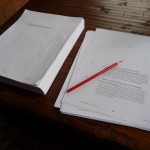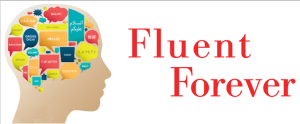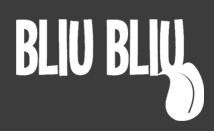After a loooong delay, I’m happy to finally have some announcements and updates!

Announcement The First: The book is done. It’s been edited, copy-edited and proof-read. Now, the letters and packages my publishers send me start off with “Here’s the book. If you want to change something, please don’t. Seriously. Stop. We’re taking any changes out of your advance. No. Stop it.” For those of you curious about what a proofread book looks like, feast your eyes on this baby: 350 single sided sheets of printer paper, corrected with a red color pencil. Awesome.
 Announcement The Second: The site is moving to Fluent-Forever.com. All future updates will be located over there. Why? Because no one knows what a Tower of Babelfish is, and because Fluent Forever is a friggin awesome book and brand title. Apologies to all who enjoyed the fish theme; you have 30 days to appreciate it before I take it down foreverrrrrrr.
Announcement The Second: The site is moving to Fluent-Forever.com. All future updates will be located over there. Why? Because no one knows what a Tower of Babelfish is, and because Fluent Forever is a friggin awesome book and brand title. Apologies to all who enjoyed the fish theme; you have 30 days to appreciate it before I take it down foreverrrrrrr.
Announcement The Third: For the next 29 days, the whole Fluent-Forever.com/TowerofBabelfish.com world is going to be all Kickstarter, all the time. Thus the giant, unignorable banner up top. This Kickstarter is my baby. It’s a tool I created when my editor asked me “OK, if pronunciation is so important, how do you actually learn it?” And I realized that my answer was “Well, if you had the right resources, you could learn it this way, but no one has made those resources yet…”
 I’ve been planning it for about a year, and I’m currently unable to sleep out of excitement, and am writing to you now at 4:30am, after a hefty 4-hour-night’s sleep. The Kickstarter is off to a tremendous start: more than 25% funded after less than 14 hours, and I haven’t even announced it on the site yet. Insane. If you’re reading this, then do these
I’ve been planning it for about a year, and I’m currently unable to sleep out of excitement, and am writing to you now at 4:30am, after a hefty 4-hour-night’s sleep. The Kickstarter is off to a tremendous start: more than 25% funded after less than 14 hours, and I haven’t even announced it on the site yet. Insane. If you’re reading this, then do these three four five things:
- Check out the Kickstarter. If you like it, back it. Even $1 makes a huge difference; the more backers we get, the more the project will show up on the front page of Kickstarter.
- Share on Facebook. If you want something to copy/paste, try this:
If you have ever wanted to learn a foreign language, check out this Kickstarter campaign: http://fluent-forever.com/kickstarter. It’s an amazing project; help spread the word! - Share on Twitter, if you use it! If you want 140 characters to copy/paste, try:
Ever wanted to learn a foreign language? Check out this awesome Kickstarter campaign and help spread the word: http://fluent-forever.com/kickstarter. - Share on Google Plus, if you’re into that kind of thing.
- Share via eMail. Email tends to be a bit more likely to actually reach people, given all of Facebook’s promoted posts and ads and baby announcements with 700 Likes. Here’s a generic email to copy/paste:
Happy December! A blogger I’m following – Gabe Wyner – is developing an amazing language learning app. He launched a Kickstarter campaign to help fund its development and I’m helping him spread the word. Check it out at http://fluent-forever.com/kickstarter, and if you like it, please share it with your own friends and colleagues!
That’s all for now. Now that the book’s done, my life’s starting to get in order and the Kickstarter has launched, I’m going to start updating the site frequently. I’ve said that before, but now I’m not lying to you. I promise.
(PS: To everyone signed up for site updates via email, sorry for the double email today! Shouldn’t happen again!)














